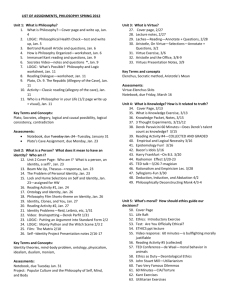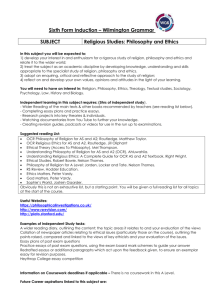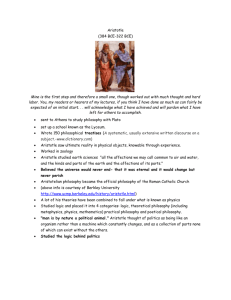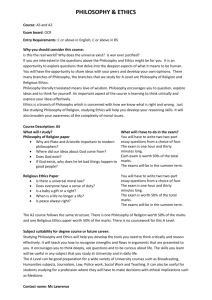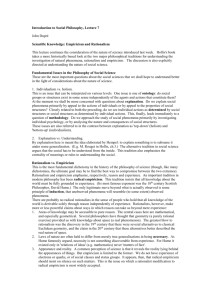Exam Review
advertisement
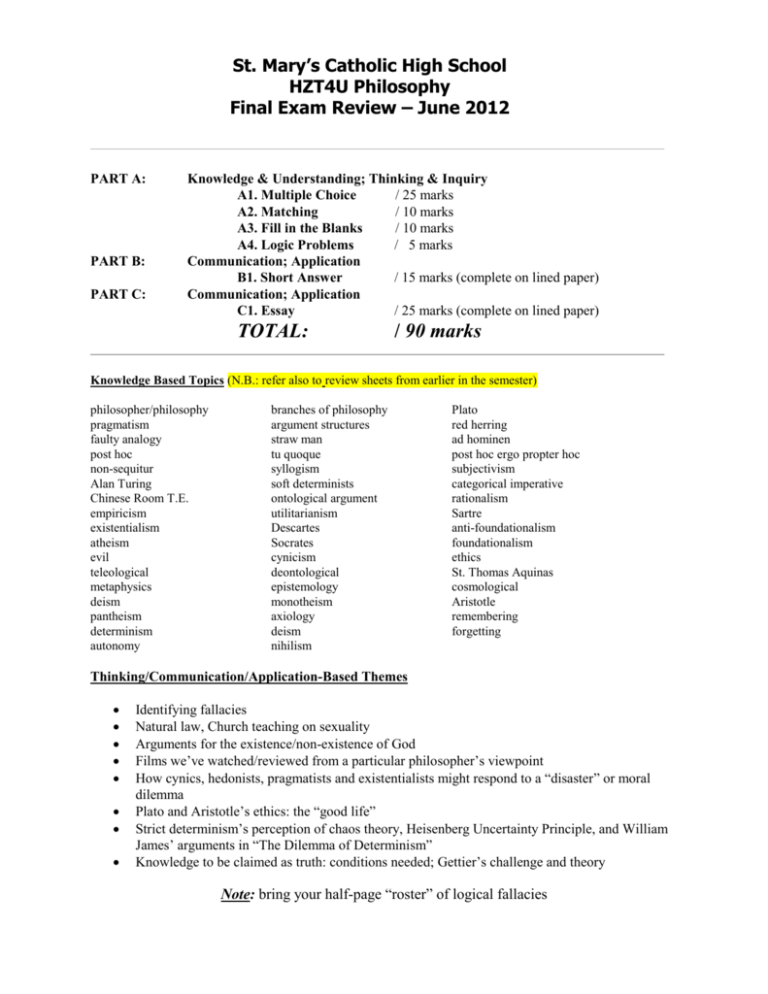
St. Mary’s Catholic High School HZT4U Philosophy Final Exam Review – June 2012 PART A: PART B: PART C: Knowledge & Understanding; Thinking & Inquiry A1. Multiple Choice / 25 marks A2. Matching / 10 marks A3. Fill in the Blanks / 10 marks A4. Logic Problems / 5 marks Communication; Application B1. Short Answer / 15 marks (complete on lined paper) Communication; Application C1. Essay / 25 marks (complete on lined paper) TOTAL: / 90 marks Knowledge Based Topics (N.B.: refer also to review sheets from earlier in the semester) philosopher/philosophy pragmatism faulty analogy post hoc non-sequitur Alan Turing Chinese Room T.E. empiricism existentialism atheism evil teleological metaphysics deism pantheism determinism autonomy branches of philosophy argument structures straw man tu quoque syllogism soft determinists ontological argument utilitarianism Descartes Socrates cynicism deontological epistemology monotheism axiology deism nihilism Plato red herring ad hominen post hoc ergo propter hoc subjectivism categorical imperative rationalism Sartre anti-foundationalism foundationalism ethics St. Thomas Aquinas cosmological Aristotle remembering forgetting Thinking/Communication/Application-Based Themes Identifying fallacies Natural law, Church teaching on sexuality Arguments for the existence/non-existence of God Films we’ve watched/reviewed from a particular philosopher’s viewpoint How cynics, hedonists, pragmatists and existentialists might respond to a “disaster” or moral dilemma Plato and Aristotle’s ethics: the “good life” Strict determinism’s perception of chaos theory, Heisenberg Uncertainty Principle, and William James’ arguments in “The Dilemma of Determinism” Knowledge to be claimed as truth: conditions needed; Gettier’s challenge and theory Note: bring your half-page “roster” of logical fallacies MDTYGKFTE* (* More Dumb Things Ya Gotta Know For The Exam) Intro: What is Philosophy? * branches of philosophy * nature of philosophical questions *************************************************** Logic: * what is an argument? * informal fallacies: straw man, red herring, etc. Epistemology: Descartes & rationalism * the cogito – how he got from radical doubt to knowledge of and belief in God Locke & empiricism * impressions … sensations … ideas Kant & “categories” of perception – bridging the rationalist-empiricist gap Skepticism and chaos theory (Note: this latter does NOT mean everything is random!) Distinction between rationalism & empiricism, & the reasons people opt for one or the other Knowledge, Belief, and Opinion “justified true belief” & Gettier’s objections to it; etc. Direct & indirect knowledge, & other distinctions *************************************************** Metaphysics: Varieties of Theism/Atheism Arguments for the existence of God: strengths and weaknesses The nature of the person: * free will and determinism (& its major weaknesses: James) * criteria for defining “personhood”: Church teaching (catechism) The mind-body problem: what it is, and various solutions Permanence & change: various views *************************************************** Ethics: Various approaches to ethics: Plato, Aristotle, Natural Law (C.S. Lewis & natural law theory: the impact of natural law philosophy on the Church’s understanding of sexuality and reproductive technologies, etc.), Hedonism/Cynicism/Stoicism, Pragmatism, Utilitarianism, Existentialism, Kant (C.I.) – be ready to illustrate with applications to specific issues *************************************************** Some key philosophers and their ideas: Socrates * the nature of virtue & evil – the “unexamined life” * human learning = remembering; evil = forgetting (what you knew in pre-existence) Plato * the ideal world of “forms” – the allegory of the cave * his ethics – philosopher kings – & the nature of happiness Aristotle * ethics – the golden mean – & the nature of happiness Aquinas * connection to Aristotle/empiricism * the Five Ways + others’ “proofs” for the existence of God (Anselm, Pascal) Mr. Phillips’ Web Page: http://www.start.ca/users/chesswiz/philosophy.html 2



